Zygote: Understanding the Beginning of Life
A zygote is the initial cell that forms when two gametes, or reproductive cells (sperm and egg), combine during fertilization. This marks the beginning of the development of a new organism. The zygote contains a complete set of chromosomes, half from the mother and half from the father, and has the potential to develop into a full organism through a series of cell divisions and differentiation.
Key Points about Zygote:
- The zygote is formed during fertilization when the sperm and egg fuse.
- It contains a complete set of chromosomes, half from the mother and half from the father.
- The zygote has the potential to develop into a new organism through cell division and differentiation.
- It marks the beginning of the embryonic development process.
Study Guide:
Here are some key concepts and questions to help you understand the topic of zygote:
Concepts:
- Reproductive cells: Understand the role of sperm and egg in the formation of a zygote.
- Chromosomes: Learn about the genetic material contained in the zygote and its significance.
- Embryonic development: Explore the stages of development that follow the formation of the zygote.
Questions:
- What is a zygote and how is it formed?
- What is the role of chromosomes in a zygote?
- How does the zygote develop into a full organism?
By understanding the formation and significance of the zygote, you will gain insight into the early stages of life and the process of embryonic development.
.◂Science Worksheets and Study Guides Eighth Grade. The Digestive System & Nutrition
Study Guide The Digestive and nutrition
The Digestive and nutrition  Worksheet/Answer key
Worksheet/Answer key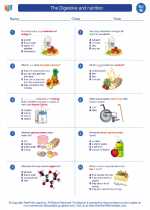 The Digestive and nutrition
The Digestive and nutrition  Worksheet/Answer key
Worksheet/Answer key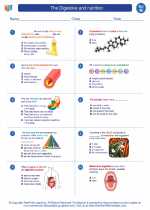 The Digestive and nutrition
The Digestive and nutrition  Worksheet/Answer key
Worksheet/Answer key The Digestive and nutrition
The Digestive and nutrition  Vocabulary/Answer key
Vocabulary/Answer key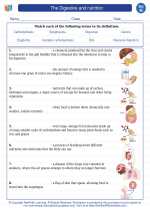 The Digestive and nutrition
The Digestive and nutrition  Vocabulary/Answer key
Vocabulary/Answer key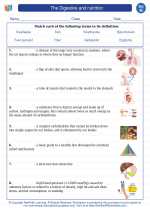 The Digestive and nutrition
The Digestive and nutrition  Vocabulary/Answer key
Vocabulary/Answer key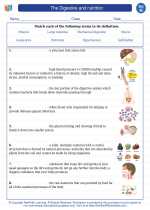 The Digestive and nutrition
The Digestive and nutrition  Vocabulary/Answer key
Vocabulary/Answer key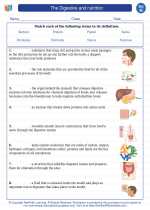 The Digestive and nutrition
The Digestive and nutrition  Vocabulary/Answer key
Vocabulary/Answer key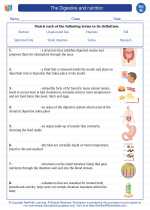 The Digestive and nutrition
The Digestive and nutrition 

 Worksheet/Answer key
Worksheet/Answer key
 Worksheet/Answer key
Worksheet/Answer key
 Worksheet/Answer key
Worksheet/Answer key
 Vocabulary/Answer key
Vocabulary/Answer key
 Vocabulary/Answer key
Vocabulary/Answer key
 Vocabulary/Answer key
Vocabulary/Answer key
 Vocabulary/Answer key
Vocabulary/Answer key
 Vocabulary/Answer key
Vocabulary/Answer key

The resources above cover the following skills:
Reading Standards for Literacy in Science and Technical Subjects
Craft and Structure
Determine the meaning of symbols, key terms, and other domain-specific words and phrases as they are used in a specific scientific or technical context relevant to grades 6-8 texts and topics.